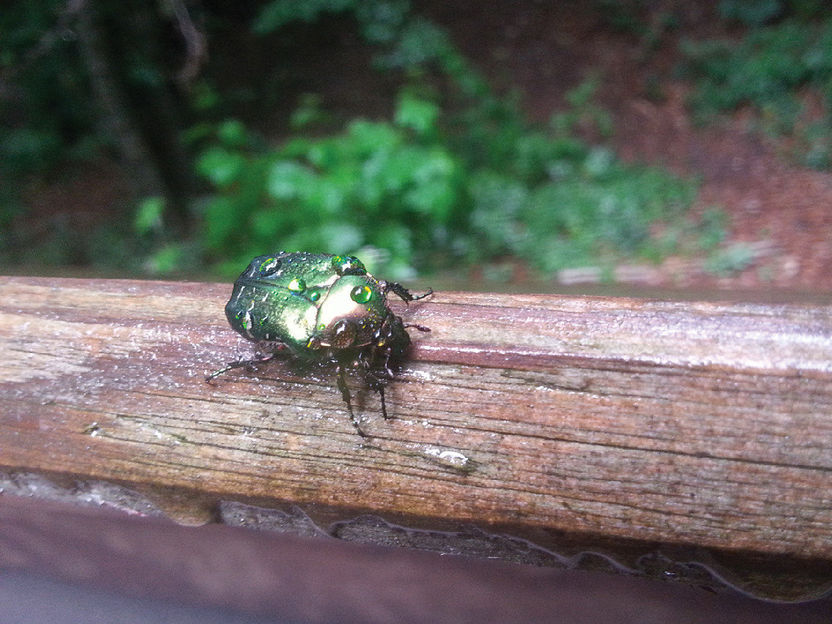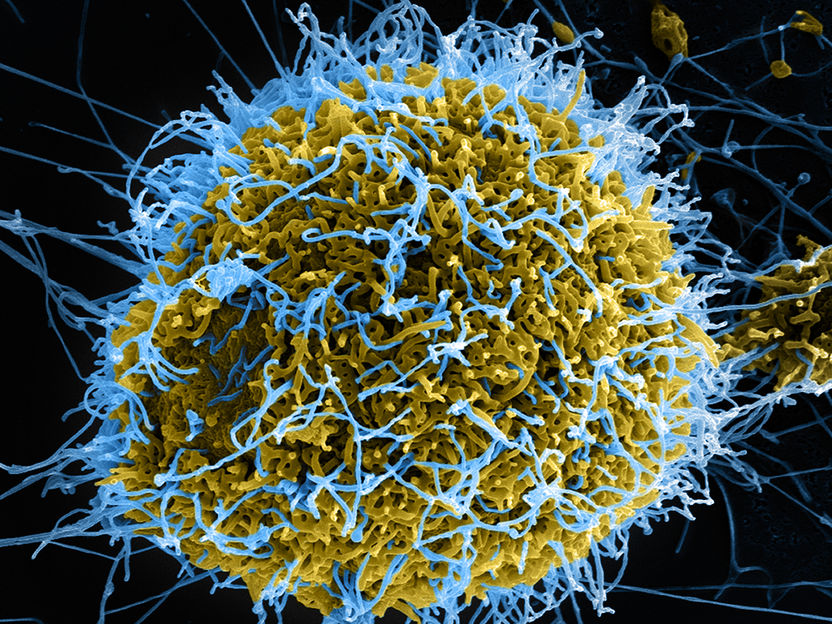Those who live longer have fewer children
The time between two generations sets the price of fertility
A long life and lots of children – that was quite a common aspiration until not so long ago. But the world of animals reveals that high fertility and longevity are often mutually exclusive: Particularly animals with shorter lifespans are often very fertile while animals that live longer frequently produce fewer offspring. It seems that organisms with limited resources can be either long-lived or very fertile – but they can’t be both at the same time. Scientists at the Max Planck Institute for Evolutionary Biology in Plön have now discovered how the trade-off between survival and fertility works. They have found that the average age at reproduction is a measure for the loss of fertility as life expectancy increases.

A rose chafer (Cetonia aurata) after the rain in Bad Malente, Germany. This beetle, like most organisms, is likely to face a trade-off between survival and reproduction.
© Stefano Giaimo
African elephants and desert tortoises can live for up to 80 years. They are exposed to many dangers throughout their lives and receive no medical help whatsoever. Such animals would therefore actually be ideal subjects for research into the secret of longevity. But studying how animals with longer lifespans age is hardly practicable. One scientist’s life would not suffice to investigate the differences between only two generations of elephants. Such extremely long research projects would also be very expensive.
That’s why scientists usually turn to animals with relatively short lifespans, such as mice and fruit flies, when they wish to investigate ageing and longevity. It’s also easier to observe and study changes in the age and lifespans between different generations of animals that reproduce rapidly, and genetic changes that prolong lifespans are frequently easier to detect in such animals. And it’s reasonable to assume that similar genes in humans would also develop life-prolonging effects.
But there’s another component that directly relates to an organism’s lifespan: its fertility. Animals with shorter lifespans, for example, are often very fertile, while ones that live longer produce only a few descendants. Mice, for instance, only live for about two years but they become sexually mature after just a few weeks and give birth to three to eight babies for up to eight times a year. Elephants, on the other hand, may live for up to 80 years, but over the course of their lives, elephant cows are only able give birth to ten calves at most. There appears to be some sort of compromise between longevity and fertility in evolution: One can only be increased at the expense of the other.
Stefano Giaimo and Arne Traulsen from the Department of Evolutionary Theory at the Max Planck Institute for Evolutionary Biology in Plön, Germany, have developed a mathematical model that makes it possible to measure this trade-off. To this end, they calculated the best combination of survival and fertility for an organism’s optimum fitness. Fertility and longevity are regarded here as two individual components that have a negative effect on each other: If one increases, the other must decrease.
The scientists’ calculations revealed that the generation time, i.e. the average age of reproduction, may be used as a conversion factor to calculate the effect that develops from the compromise between fertility and survival: If an organism lives longer, its fertility decreases. “An increase in the survival probability by 2% from one time period to the next means, for example, a percentage fertility loss at any age equal to twice the generation time of the organism,” says Stefano Giaimo.
A seemingly insignificant increase in the probability of survival may therefore seriously affect reproduction. Mice, for example, have a generation time of 2.5 months. A 4% increase in survival from one month to the next may reduce monthly fertility by up to 10%. The effect of longer lifespans on human fertility cannot be determined exactly at this point in time. “However, it’s possible that ageing research based on animals with shorter lifespans strongly underestimates the price we would have to pay for longer lives,” explains Arne Traulsen.






















































